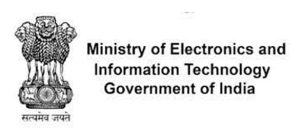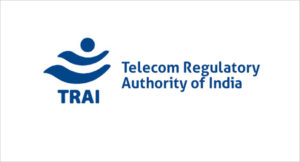
New Delhi :- As part of the National eGovernance Plan, the eCourts Mission Mode Project is under implementation for ICT development of the Indian Judiciary based on the “National Policy and Action Plan for Implementation of Information and Communication Technology in the Indian Judiciary”. eCourts project is being implemented in association with e-Committee Supreme Court of India and Department of Justice. Phase I of the project was implemented between 2011-2015. Phase II of the project extended from 2015-23.The Government has taken the following e-initiatives to make justice accessible and available for all: –
- Under the Wide Area Network (WAN) Project, connectivity has been provided to 99.4% (2976 out of earmarked 2994) of total Court Complexes across India with 10 Mbps to 100 Mbps bandwidth speed.
- National Judicial Data Grid (NJDG) is a database of orders, judgments, and cases, created as an online platform under the eCourts Project. It provides information relating to judicial proceedings/decisions of all computerized district and subordinate courts of the country. Litigants can access case status information in respect of over 23.34 crore cases and more than 22.21 crore orders / judgments (as on 03.07.2023).
- Case Information Software (CIS) based on customized Free and Open-Source Software (FOSS) has been developed. Currently CIS National Core Version 3.2 is being implemented in District Courts and the CIS National Core Version 1.0 is being implemented for the High Courts.
- A new software patch and court user manual for COVID-19 management has also been developed. This tool will help in smart scheduling of cases thereby enabling judicial officers to retain urgent cases and adjourn cases not urgent on cause list. A user manual for this patch has also been issued for the ease of the stakeholders.
- As part of eCourts project, 7 platforms have been created to provide real time information on case status, cause lists, judgements etc. to lawyers/Litigants through SMS Push and Pull (2,00,000 SMS sent daily), Email (2,50,000 sent daily), multilingual and tactile eCourts services Portal (35 lakh hits daily), JSC (Judicial Service centres) and Info Kiosks. In addition, Electronic Case Management Tools (ECMT) have been created with Mobile App for lawyers (total 1.88 cr. downloads till 30thJune 2023) and JustIS app for judges (19,164 downloads till 30th June 2023).
- India has emerged as a global leader in conducting court hearing through Video Conferencing. The District & Subordinate courts heard 1,98,67,081 cases while the High Courts heard 78,69,708cases (totalling 2.77 cr) till 30.06.2023 using video conferencing system. The Hon’ble Supreme Court of India held 4,82,941 hearings through video conferencing till 15.05.2023. VC facilities have also been enabled between 3240 court complexes and corresponding 1272 jails. Funds for 2506 VC cabins and VC equipment for 14,443 courtrooms have also been released. 1500 VC licenses have been procured to promote virtual hearings.
- Live Streaming of court proceedings has been started in High Courts of Gujarat, Gauhati, Orissa, Karnataka, Jharkhand, Patna, Madhya Pradesh & Hon’ble Supreme Court of India thus allowing media and other interested persons to join the proceedings.
- 22 Virtual Courts in 18 States/UTs have been operationalized to handle traffic challan cases. More than 3.26 crore cases have been handled by 22 virtual courts and in more than 39 lakhs (39,16,405) cases online fine of more than Rs. 419.89 crores has been realized till 30.06.2023.
- New e-filing system (version 3.0) has been rolled out for the electronic filing of legal papers with upgraded features. Draft eFiling rules have been formulated and circulated to the High Courts for adoption. A total of 19 High Courts have adopted the model rules of e-Filing as on 30.06.2023.
- e-Filing of cases requires the option for electronic payment of fees which includes court fees, fines and penalties which are directly payable to the Consolidated Fund. A total of 20 High Courts have implemented e-payments in their respective jurisdictions. The Court Fees Act has been amended in 22 High Courts till 30.06.2022.
- To bridge the digital divide, 819 eSewa Kendras have been rolled out with the intention of facilitating the lawyer or litigant who needs any kind of assistance ranging from information to facilitation and eFiling.It also assists the litigants in accessing online e-Courts services and acts as a saviour for those who cannot afford the technology or are located in far-flung areas. It also aids to addresses the challenges caused by illiteracy among citizens at large. It will provide benefits in saving time, avoidance of exertion, travelling long distances, and saving cost by offering facilities of e-filing of cases across the country, to conduct the hearing virtually, scanning, accessing e-Courts services etc.
- In addition to eSewaKendras, as part of the DISHA (Designing Innovative Solutions for Holistic Access to Justice) scheme the Government of India has launched Tele Law program since 2017, which provides an effective and reliable e-interface platform connecting the needy and disadvantaged sections seeking legal advice and consultation with panel lawyers via video conferencing, telephone and chat facilities available at the Common Service Centres (CSCs) situated in Gram Panchayat and through Tele-Law mobile App.
- National Service and Tracking of Electronic Processes (NSTEP) has been launched for technology enabled process serving and issuing of summons. It has currently been implemented in 28 States/ UTs.
- A new “Judgment Search” portal has been started with features such as search by Bench, Case Type, Case Number, Year, Petitioner/ Respondent Name, Judge Name, Act, Section, Decision: From Date, To Date and Full Text Search. This facility is being provided free of cost to all.
The eCourts Phase II formally came to an end on 31st March 2023.For further expanding the reach of justice through digital revolution, the Government of India, in the Union Budget 2023-2024, announced Rs. 7000 crores for Phase-III of e-Courts project. Based on Detailed Project Report approved by eCommittee, Supreme Court of India, the Expenditure Finance Committee in its meeting held on 23.02.2023 has recommended eCourts Phase III with a total outlay of Rs.7210 Crore. Further, the Empowered Technology Group chaired by the Principal Scientific Advisor to the Prime Minister in its meeting held on 21.06.2023 has also recommended the eCourts Phase III for approval.
This information was given by the Union Minister of Law and Justice, Shri Arjun Ram Meghwal, in a written reply in Lok Sabha today.
****


